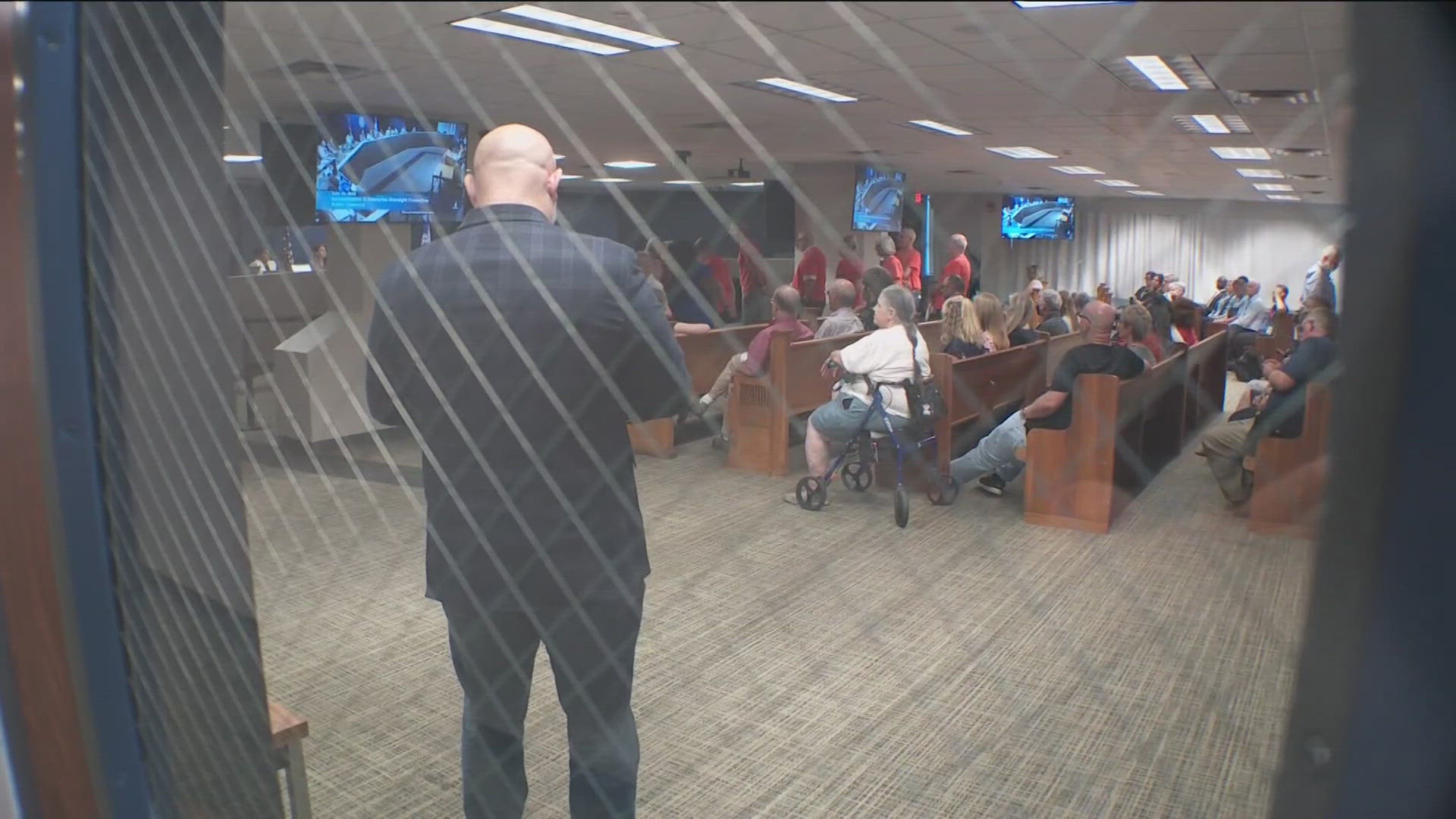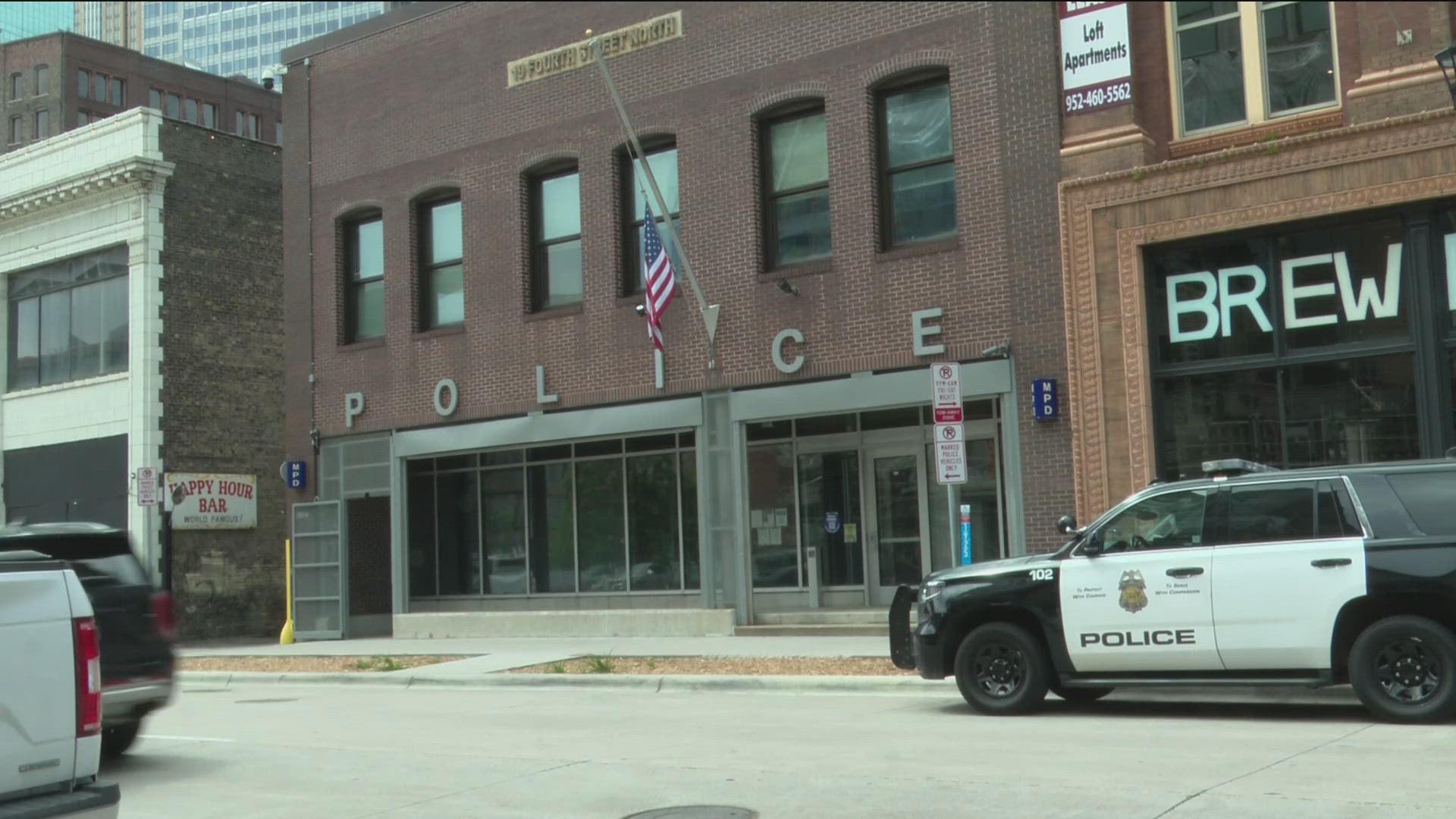MINNEAPOLIS — A final vote on the new Minneapolis Police contract had been set for June 27, but that will now be pushed to July 18 at the earliest.
The Minneapolis City Council's Administration and Enterprise Oversight Committee Tuesday night could not agree on the next step in the process, so the debate will be pushed to another committee meeting July 8. That would, in theory, will set the stage for a vote by the full council on the 18th.
Earlier Tuesday, Ward 2 Council Member Robin Wonsley told reporters she had originally pledged to hold two public hearings on the new contract with the Minneapolis Police Federation, and she wanted to stick with that. An earlier planned hearing didn't take place because the panel lacked a quorum.
"My intention in this process is for there to be clear communication to the residents about what is and what is not included in this contract, the implications of any proposed changes or the lack thereof," Wonsley explained.
She proposed going ahead with Tuesday night's public hearing, and then holding a second public meeting on the contract July 8 leading up to a final council vote July 18.
"This gives the public about three weeks to sit with the contract, sit with the information that’s presented, and to provide public comment."
After Tuesday's public hearing, every motion on a possible next step failed by a three-to-three vote.
Mayor Jacob Frey told reporters earlier in the day there was no need to postpone action, noting that the process has been the very transparent and the terms of the deal were published June 7.
"A delay is not the right move, especially right now. There has been time. Council members have been able to weigh in," Frey remarked.
"We have 136 officers who could retire at any moment. The police officers have already waited, now a year for this new contract."
The mayor was flanked by Ward 3 Council Member Michael Rainville and Ward 13 Council Member Linea Palmisano, who said there's no need slow things down this far into the process.
"I'm eager to get started. I'm eager to get those management rights back. I'm eager to have the opportunity to have competitive wages for our law enforcement, for their recruitment efforts," Palmisano said.
The contract calls for a 21 percent increase in base pay across three years, which would be retroactive to January of 2023 when last contract expired.
By July of 2025, starting pay would range from $41 per hour for new recruits -- $85,000 per year -- all the way to $72 per hour for veterans at the very top of the pay scale, which would equate to $149,000 per year.
The contract would also give Chief Brian O'Hara new management powers previous chiefs have lacked, specifically more control over staffing decisions.
"The chief has the ability to place officers where he needs them, and when he needs them there," Frey said.
"Most people would've thought that's an authority the chief already had. It wasn't."
The mayor was flanked by Ward 3 Council Member Michael Rainwater and Ward 13 Council Member Linnea Palmisano, who said there's no need slow things down this far into the process.
"I'm eager to get started. I'm eager to get those management rights back. I'm eager to have the opportunity to have competitive wages for our law enforcement, for their recruitment efforts," Palmisano said.
The city is down more than 300 officers from where it was before the pandemic and the murder of George Floyd.
Ward 5 Council Member Jeremiah Ellison said there are many unanswered questions about how the city budget will absorb the new costs, and what the impact will be in the long run on the city's property taxpayers.
"It's not a matter of do these officers deserve increased pay. It's more a matter of, is it fair to every worker in the city, is it on pace with that, and how do we pay for that? How do we afford it."
The city is down more than 300 officers from where it was before the pandemic and the murder of George Floyd.
Council President Elliott Payne, appearing with Wonsley, noted that the Minneapolis City Council can't negotiate different contract language.
"We don’t get to negotiate the details of the contract. It’s an up or down vote," Payne told reporters.
"If we vote it up that means it gets enacted and we put it in play. If we vote it down, it goes back to negotiation."
Some council members want more specific language around policing reforms inside the contract, but Frey those are part of processes in place outside of the agreement with the police union.


